Table of content
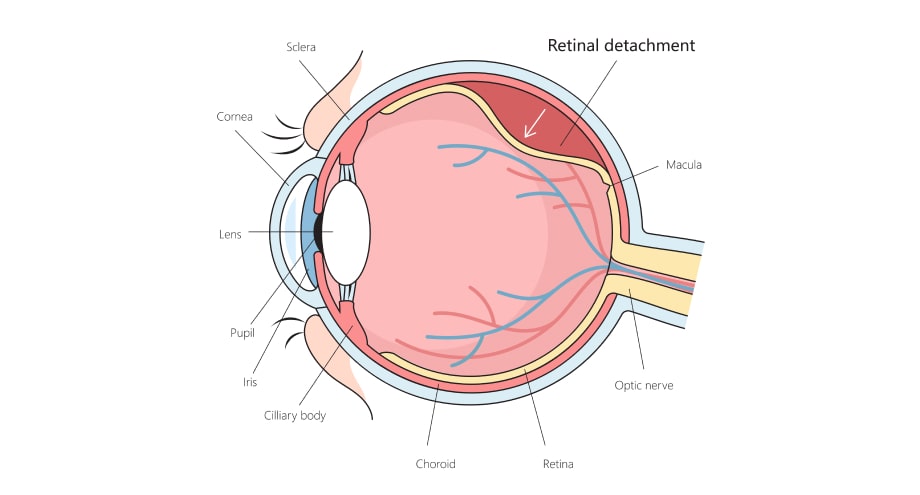
What is Retinal Detachment?
Retinal detachment is when the retina, the tissue at the back of the eye, becomes separated. This can cause vision problems and even blindness if not treated promptly. Early detection and treatment are crucial to preventing vision loss.
Symptoms
While retinal detachment may initially show no noticeable symptoms, as the condition progresses, individuals may begin to notice the following changes in their vision:

- Sudden appearance of floaters (small specks or spots in vision)
- Flashes of light, especially in peripheral vision
- Blurred vision
- A curtain-like shadow moving across the visual field
- Loss of peripheral (side) vision
Causes
Retinal detachment can occur due to various reasons, like ageing, eye injuries, or surgeries like cataract removal. Some people may have a higher risk due to genetics or other eye conditions.
Types
There are two main types of retinal detachment:
Rhegmatogenous Retinal Detachment
Occurs when a tear or hole forms in the retina, allowing fluid to seep underneath and separate it from the underlying layers.
Tractional Retinal Detachment
Caused by scar tissue pulling on the retina, often seen in advanced cases of diabetic retinopathy.
Risk Factors
Several factors increase the risk of retinal detachment:

- History of having retinal detachment in one eye
- History of having eye surgeries like cataract removal
- Ageing
- Severe eye injury
- Family history of retinal detachment
- Myopia or extreme nearsightedness
- Presence of other eye disorders and diseases like uveitis, lattice degeneration, or retinoschisis
How to prevent
To help prevent retinal detachment or reduce its risk, individuals should or you can contact us the best eye hospital of Maharashtra
Regular eye check-ups for early detection
Timely laser treatment, if necessary
Maintain control of blood sugar and blood pressure
Follow a healthy lifestyle with regular exercise and a balanced diet
Ensure regular preventive care and follow-up
Types of Treatments
Treatment options for macular degeneration aim to manage the condition and slow its progression. Common treatments include:
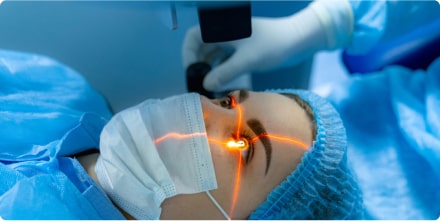
Retinal Laser Photocoagulation and Cryopexy are used to repair retinal tears by sealing them with laser or freezing techniques.
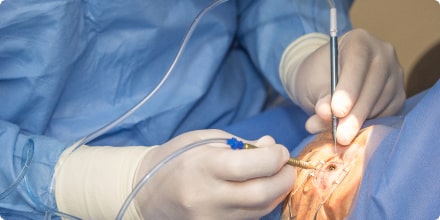
Pneumatic Retinopexy involves injecting a gas bubble into the eye to push the detached retina back into place, followed by laser or freezing treatment to seal the tear.
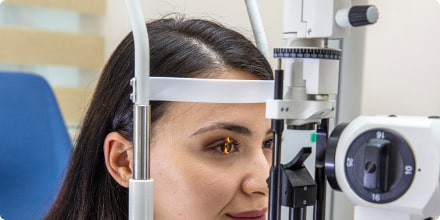
Scleral Buckling is a surgical procedure where a silicone band is placed around the eye to push the detached retina back into place and hold it in place.
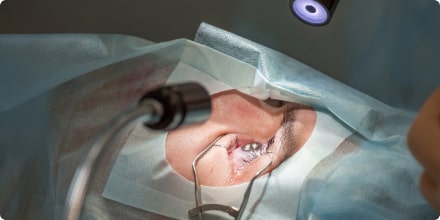
Vitrectomy involves removing the vitreous gel from the eye and replacing it with a clear solution to aid in reattaching the retina.
Early detection and prompt treatment are crucial for successful outcomes.
Table of content
Book an appointment
Informative and Comprehensive
Frequently Asked Questions
Common queries about the treatment are addressed in this section. Find your answers here.
How do i schedule an appointment?
You can schedule an appointment by calling our hospital directly, filling out our online appointment request form or visit our hospital in person. Our staff will assist you in finding a convenient appointment time.
How long is the recovery period after eye surgery?
Recovery time can vary depends upon the types of surgery performed and individual factors. Generally, most patients experience significant improvement within few days or weeks following surgery.
Do you accept insurance plans?
Yes, we accept insurance plans and we aslo accept flexible payment options for patients without insurance coverage. you can visit our website for more details and can contact our billing department for specific insurance-related inquiries.
What are the common eye conditions treated at your hospital?
We specialise in treating a wide range of eye conditions, including cataract, glaucome, macular degeneration, diabetic retinopathy, and refractive errors such as myopia and hypermetropia and astigmatism.
What measures do you take to ensure patient safety during eye surgeries?
We follow strict surgical protocols and maintain a sterile environment in our surgical facilities to minimize the risk of infection and ensure the safety of our patients during eye surgery.
Do you offer pediatric eye care services?
Yes, we provide specialised pediatric eye care services, including comprehensive eye care examination, vision screenings, and treatment of common childhood eye conditions.